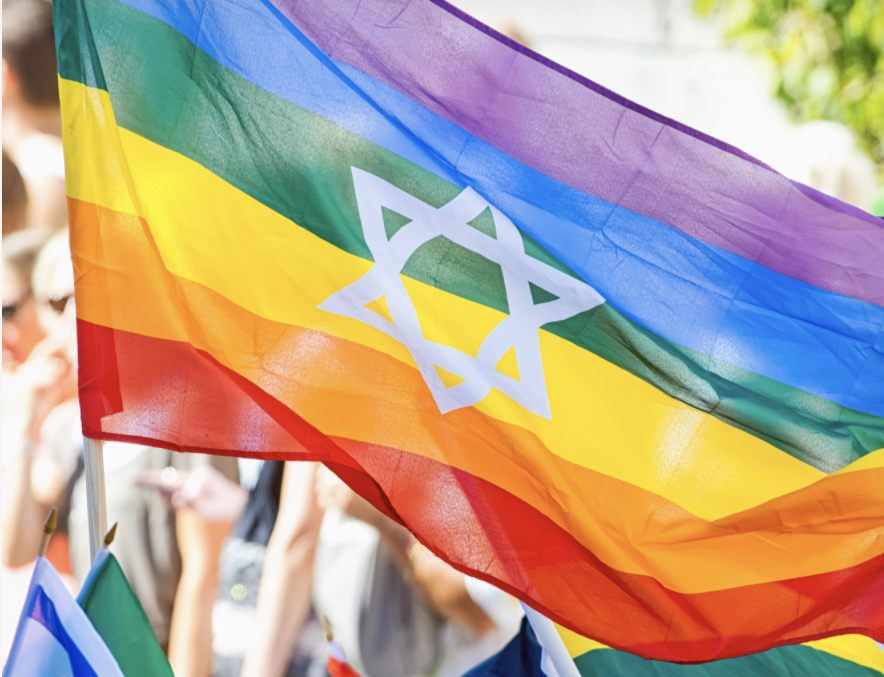LGBT Acceptance in Israel and Ukraine
Grassroots organizers in Project Kesher communities in Ukraine and Russian-speaking communities in Israel have seen a transformative cultural evolution of the rights and acceptance of Lesbian, Gay, Bisexual, Transgender+ (LGBT) people in the last decade. Project Kesher (PK) has been supporting feminist Jewish leadership development for 20 years in Ukraine and 12 years in Russian-speaking communities in Israel, and in that time PK-trained activists have been at the forefront of this social change. With 4,500 trained leaders around the world, the Project Kesher network has provided the language and context needed for Jewish communities in Israel and Ukraine to become safer and more welcoming to the LGBT community.
Homophobia was rampant in Soviet culture and widespread in traditional Jewish communities in Europe. Russian-speaking Jews faced a double barrier to coming out, supporting LGBT and questioning children and teens, and living a healthy LGBT life. In the Soviet Union, sexual orientation was used as a political weapon, and in families, any variance from heteronormativity was seen as shameful or even as a disease. PK-trained leaders have long identified homophobia as a major root cause for gender-based violence in the home.
Thirty years after the dissolution of the Soviet Union, the culture of stifling free expression and individuality permeates in the families born into it. Though advances in tolerance around gender and sexual identity cannot be seen across the entire Former Soviet Union region, Ukrainians and Russian-speaking Israelis are experiencing a significant shift.
In Ukraine, support for LGBT rights has grown since a Western-backed government came to power in 2014 but homophobic attitudes and attacks are still relatively common. In 2018, Project Kesher leaders joined the US Embassy at the LGBT Pride march in Kyiv. The message, LGBT rights are human rights, is still a novel idea to 50% of the population in Ukraine. The conversations and programs being implemented by Project Kesher Ukraine (PKU) activists today would not only have been taboo three years ago, but also could have cost them local funding and partnerships. On The International Day Against Homophobia, Transphobia and Biphobia, PKU social media posts in solidarity with the Jewish LGBT community of Ukraine reached thousands. In June 2021, PKU plans to highlight LBGT-identifying Jewish global activists and ambassadors in different spheres of social and professional life, and further explore Jewish views on LGBT issues with influential community leaders. For example, a rabbi will be answering questions submitted anonymously about the LGBT Jewish community that people were too afraid to ask. While PK Ukraine initially received negative comments about LGBT content, now they generally only see positive feedback.
Project Kesher Israel has provided programming for Russian-speaking immigrants ages 25 - 90 to become familiar with the LGBT community and movement since 2015. This target audience brings their Soviet culture and concepts with them to Israel, where the ultra-Orthodox Jewish world view reigns. Though in Israel LGBT rights are advanced by Western standards, religious coercion leads to homophobia and rejection more often than not. PK Israel is known for inviting speakers including social workers and psychologists, mothers of LGBTQ children, and religious LGBT community leaders to discuss equal rights, acceptance, and understanding in Russian. These experiences have led to beautiful stories of Russian-Israeli families healing from generations of homophobic abuse. This year, Project Kesher Israel Executive Director Rabbi Olya Weinstein has been invited to lead a series of Jewish education programs at the Tel Aviv Municipal LGBT Community Center, speaking about Jewish identity with a feminist and progressive lens. PKI opened Pride Month with a panel conversation on LGBT and the Russian Aliya featuring well-known Russian-speaking LGBT activists. Many LGBT Russian-speaking immigrants in Israel have rejected Jewish life, having never been accepted in Orthodoxy, but Project Kesher Israel is providing a new and welcoming on ramp to Jewish life, one that is accepting and proud to include them, in their native language, underlining that being Jewish and LGBT are not contradictory.

